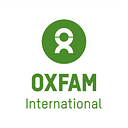After five years of conflict, I saw glimmers of hope being made invisible in Yemen
Qoabdool calls for peace.
She is a mother of eight children who lives in a camp for displaced people near the City of Al-Turbah, a town in Taiz Governorate, Yemen.
The message she gave me to take back was clear: “We need help, yes — but most of all we want to return to our homes in peace; we want back our lands, our jobs and our lives; we need this war to end … now”.
I traveled to Yemen last week to understand better the struggles of the Yemeni people and the work that Oxfam does with our partners across the country.
Smoking fires of continued fighting
After five years of conflict, Yemen today sees glimmers of hope for its people that are all but made invisible by the smoking fires of continued fighting — and by an international community that is blind to, or complicit in, its peoples suffering.
Thirty civilians were killed in strikes last Saturday alone. Five years of conflict in Yemen, a conflict now protracted like Syria and reverberating across the region, has impoverished over 24 million people — about 80 percent of the population — who now depend upon aid. 10 million people are a step away from famine.
A courageous, locally-led humanitarian agenda
The Oxfam team I joined in Yemen — majority Yemeni — are intensely capable and committed to the peaceful future of their own people. Courageous, too — in my two decades of humanitarian work never have I seen a determination of those Yemeni women of Oxfam and our partners who drive our operations in remote offices and extreme conditions, constantly under pressure from the authorities and often from their own communities.
Their leadership reflects how Oxfam’s humanitarianism is evolving to be far more rooted as part of local communities and organizations — not over them. This is the new humanitarian agenda — one that is led locally — and that rightly has changed Oxfam.
Our humanitarian action today includes our alliances with amazing women’s organizations that are not only delivering much needed humanitarian assistance on the frontlines where many other agencies simply cannot reach, while also pushing for their right to be heard in peace negotiations.
I spoke with women involved in water programs located in near-impossible geographies — programs that are cherished and maintained by the communities who get to drink and use the clean water they provide. Others are helping to build houses as part of cash-for-work schemes, so they can pay for food and medicines.
Our response prioritizes gender justice: supporting women, across the region, to fight the deep patriarchal norms that would otherwise seek to diminish their voices and paralyze their actions.
When saving lives is made even harder
In both Yemen and capitals around the world, we push for safe, secure and unimpeded humanitarian access, and for humanitarian principles to be upheld.
The world’s worst crisis is also one in which it is endlessly and increasingly difficult to save and rebuild lives. Authorities and other groups with power — and often guns — are known to harass women aid workers, question indispensable expenses, delay the approval of visas, block roads and demand kickbacks, and paralyze the process of signing of agreements for life-saving programs.
In the space of a week in Yemen I counted more than a hundred checkpoints that I passed through. I know our teams can at times spend hours stuck in them. How can that be amid such intense suffering?
Aid, not arms
We call for funding to save lives. The United Nations are seeking a minimum of $4.2 billion — and yet still it is not met. That some rich governments are considering cutting off funding to Yemen is unacceptable, and indeed frightening from the perspective of an internally displaced person (IDP) camp in a place like Al-Malikah. People taking decisions on whether to continue their support must consider the size of the needs and the growing vulnerability.
If rich governments are to turn their backs on anything, it must not be aid, but on the arms trade — their arms trade — that continues to thrive in the region and fuel this conflict. Countries including the USA, UK, France and Spain that supply arms in the conflict to parties such as the Saudi-led coalition share responsibility for the damage they are wreaking on the civilian population.
No other way: negotiations, this time inclusively
Most of all, Qoabdool and Yemenis across the country desperately need all parties to the conflict to stop fighting and return to negotiations, this time truly committed to a lasting peace. There is no other way. Conflict and death continue even as the ink hasn’t yet dried on the latest agreement.
But this time we need a far more inclusive political process, one that includes Yemeni women, youth and civil society and truly listens to them, not just those people with guns. All the evidence shows that the chances of a sustainable peace are higher when women are equally empowered as the architects of peace negotiations.
Peace is demanded. Yemenis cannot be made to wait for it any longer.
Chema Vera is Interim Executive Director of Oxfam International, a confederation of 20 organizations working in more than 90 countries empowering people to create a future that is secure, just and free from poverty.
